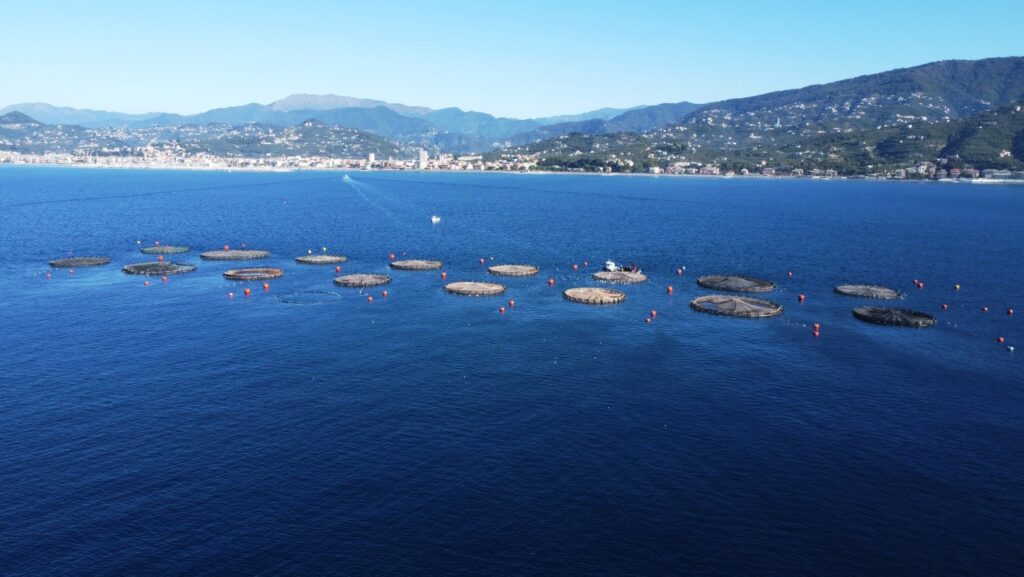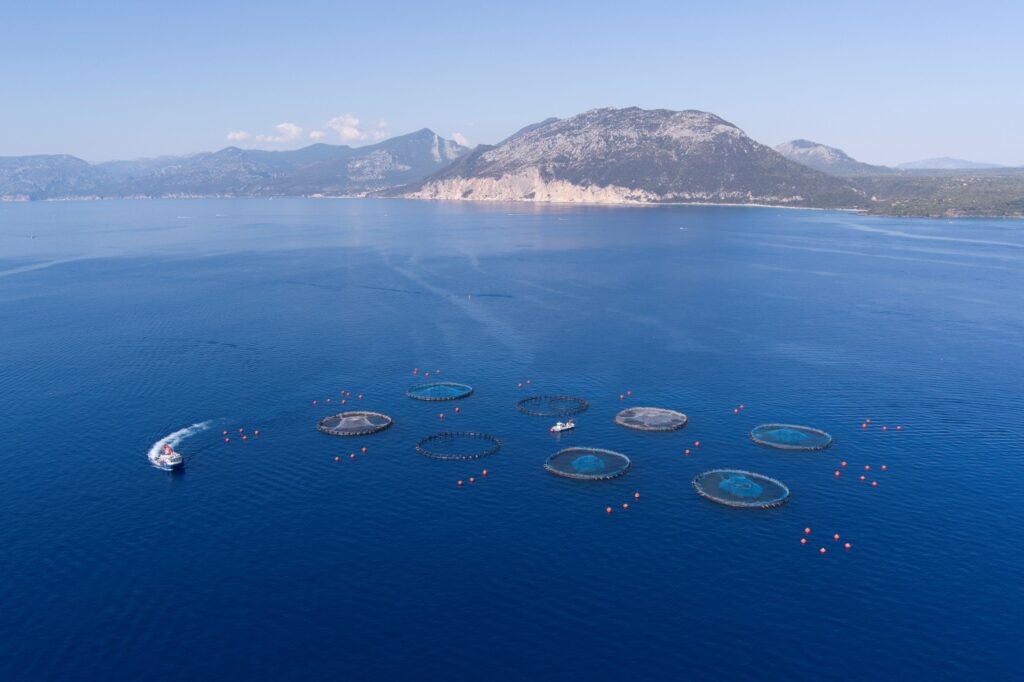Written by: Andrea Adelmo Della Penna
From: WIISE
Aqua De Mâ is an Italian company operating in the aquaculture sector, being the main species farmed sea bream and sea bass. This company hosted the testing of one of the tools developed in WASTELESS for measuring and monitoring Food Loss and Waste, the blockchain-based electronic registry developed by WIISE.
‘Sustainability is our philosophy’ is the motto of this company located in Lavagna, a municipality in the Liguria region, positively known for the important development in the fishing sector and aquaculture itself, thanks to its important outlet to the Tyrrhenian Sea. A second off-shore plant (i.e. a structure for breeding fish and other marine organisms in open ocean waters, far from the coast) is in Orosei, Sardinia. This is another area of Italy well known for the beauty and cleanliness of its seas.

Aqua De Mâ approach is mariculture, cultivation of marine organisms in seawater, specifically on off-shore aquaculture, which uses floating or submerged cages and offers advantages such as a reduced environmental impact compared to coastal farms and the possibility of exploiting larger marine areas.
The well-touted sustainability relationship of Aqua De Mâ is (also) due to its participation as a partner in the EcoeFISHent project (https://ecoefishent.eu/), funded by H2020. The project started in October 2021 and intends to finish by September 2026, and aims to create a replicable, systemic and sustainable cluster, through the development of six circular value chains (CVCs):
4. From fish to soil
5. From soil-to-soil improver
6. From fishing nets to cars and packs
Aqua De Mâ is strongly active in CVC 1, 2 and 3, providing the side streams of fish product processing to obtain EcoeFISHent powders, rich in bioactive substances that can be used as high-quality and economically valuable food supplements such as nutraceuticals (e.g. peptides and fish oil), as well as non-food uses such as skin-care products (e.g. hydrolysed collagen and/or fish oils) and biopolymers for packaging (e.g. gelatine).

The synergy between WASTELESS and EcoeFISHent stems from a shared interest in reducing food waste and making use of all parts that are conventionally discarded or underutilised (e.g. for energy purposes).
Technical-scientific manager Roberta Patellani said she was enthusiastic about testing the blockchain-based electronic registry:
‘A system is needed to support food business operators (FBOs) in tracking material flows and providing a clear, disaggregated view of the correct use of raw materials and optimal management of side streams, seeking to understand how much waste is produced and finding functional solutions to prevent and reduce its generation’.
After testing the WASTELESS tool developed by WIISE, Roberta Patellani gave her opinion and overall experience:
‘Filling out the questionnaire was straightforward. However, there is certain information that may not be immediately available to the company. Therefore, some preliminary effort is required to collect all the required data. Some information is also difficult to understand without technical support from WIISE (e.g. Classification of Products by Activity, CPA).’
‘I am sure that, following a simplification of these requirements, all operators will have a useful and advantageous tool for monitoring and measuring food waste and finding new prevention and reduction solutions that will benefit sustainability and the circular economy’.
The generation of fish waste and underused animal by-products (ABPs) from fisheries and fish industries is still a recurring problem in the food industry, but the synergic combination of the WASTELESS and EcoeFISHent projects’ results are contributing to measure and monitor the side streams from aquaculture to prevent and reduce unnecessary food waste, while valorising unavoidable side streams to obtain valuable food products, and other products with respect of circular economy principles.
